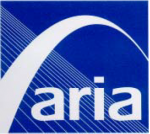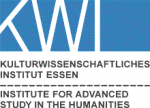This article examines the “economic” arguments put forward in favor of voucher privatization and it gives an institutional analysis of how the investment funds might be expected to behave in spite of expectations seen through rose-colored glasses. As one of the “great” social experiments of the late 20th century, some lessons for the future are drawn.
Lessons from East Europe’s Voucher Privatization
Lessons of the Moldova ARIA Project

This paper, coauthored with Vladimir Kreacic, describes a remarkably successful World Bank project in the poorest of the countries of the former Soviet Union. It contains many lessons for development projects elsewhere.
Pragmatism versus Economics Ideology
This paper contrasts some of the wisdom of philosophical pragmatism with the social engineering ideology implicit in the conventional economics profession. The principal case example is the transition strategies of Russia versus China.
Knowledge and Ignorance in the Post-Socialist Debates
These are the slides for my talk in the invited lecture series, The Specter of Ignorance, at the Korbel School of Denver University May 2012.
Human Development in the Post-Socialist Transition
This paper in a philosophical journal looks at the post-socialist transition issues from the viewpoint of human development with special attention to teasing out some arguments from John Dewey.
Renaissance Humanism and the Post-Socialist Transition

This paper compares some of the themes in the “renaissance” of the post-socialist transition with the Renaissance itself–along with some personal reflections on my experiences in the transition.
Management-Employee Buyouts in Privatization

This 1993 report for the Central and Eastern European Privatization Network was known for giving early and ultimately accurate criticism of the shock therapy and voucher privatization programs.
The Democratic Worker-Owned Firm

My second book was the 1989 The Democratic Worker-Owned Firm. The book was revised for the Chinese translation, and that is the version that can be downloaded here. This book develops the labor theory of property and democratic theory arguments for a democratic firm, and analyzes the connection between those principles and the legal structure of the firms.